Communicating Christ in a Multicultural World
8. Western Thought
Lesson Objectives
Understand what the main "Christian-related" cults teach, how people are drawn to then, and how to reach followers with the Gospel.
"See to it that no one takes you captive through hollow and deceptive philosophy, which depends on human tradition and the basic principles of this world, rather than on Christ." (Colossians 2:8-10)
Introduction
Secular alternatives to Biblical evangelical Christianity have been increasingly accepted by sections of the established church, labelled "Christian" and gone on to influence the worldviews of millions.
Many philosophers since the Renaissance have come from within the "church". Some (eg Francis Schaeffer) have addressed philosophy from a Biblical perspective. Others have mirrored (or been transformed into) non-Christian worldviews.
Strictly speaking our topics this week are not "religions", because they no longer necessarily involve belief in God or gods, have no religious liturgy, no supernatural, but they are religious in that they seek to explain the fundamental questions: why am I? where did I come from? where am I going? what is life all about? They have their own "scriptures", "priests" and communities.
It is a small step from apathy to atheism.
Paul's exhortation is that we not be captivated by such philosophies (philosophy = "love of wisdom", ie human wisdom in these cases).
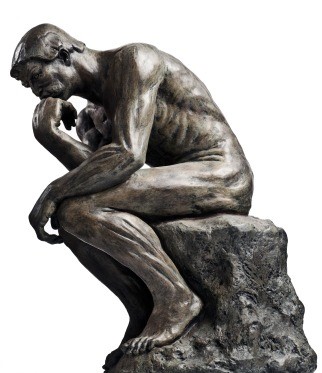

Where does our thinking originate?
We will focus on:
- secular humanism
- existentialism
- positivism
Our topics may appear a bit theoretical. Pay close attention though, because they explain some of the most popular underpinnings of Western thought and belief.
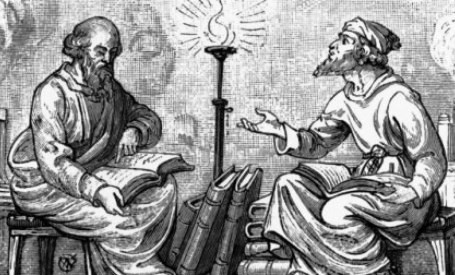
1. Secular Humanism - Man at the Centre of All Things
"you shall be as God" (Genesis 3:5)
[Not to be confused with humanitarianism.]
Secular humanism is a way of looking at our world that emphasizes the centrality of human beings - their nature and place in the universe. Many varieties, both religious and nonreligious. Humanism teaches every person has dignity/worth and should command the respect of others. However, the underlying premise is exclusion of God.
Flourished as historical movement in Europe from the 1300s-1500s. Started out in the church, with people who believed in God. The study of humanity formed intellectual core of the Renaissance.
Shifted focus and meaning with the rediscovery of classical Greek and Roman literature and culture that taught, "man is the measure of all things", the ultimate norm, the ultimate being, ultimate authority; all reality and life centre on him.
The scholars and artists of ancient Greece and Rome had emphasised the study of man. Classics had been unknown in Europe since the decline of the Roman Empire - preserved in the Muslim world and "rediscovered" in the West.
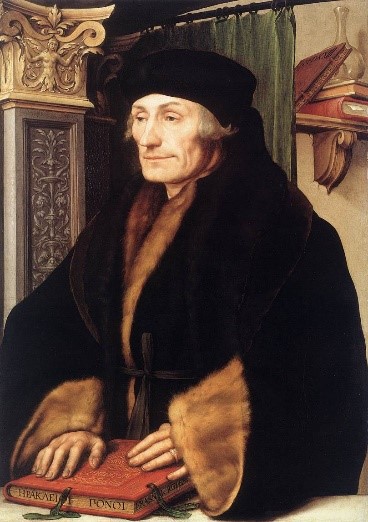
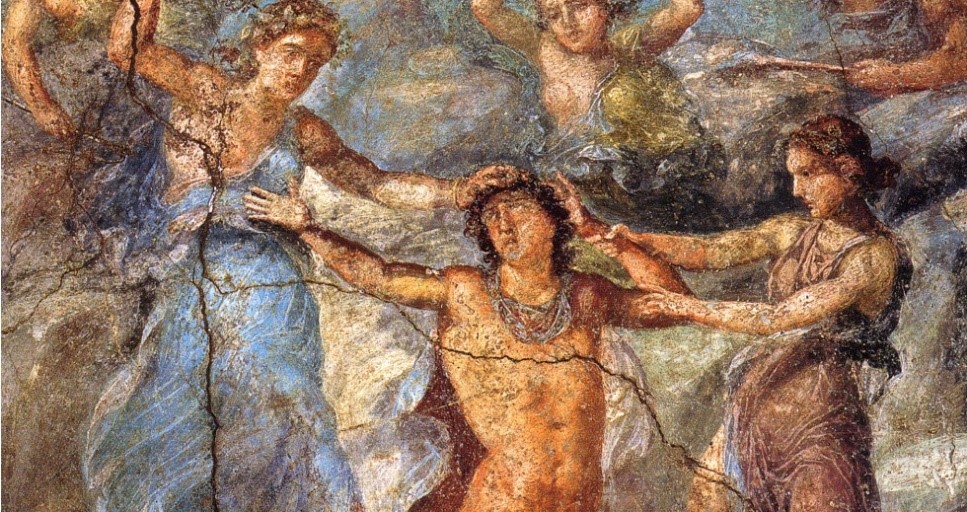
Desiderius Erasmus (1466-1536), was a Dutch priest/scholar who sought to reform the church. He initially supported Martin Luther and other leaders of the Reformation. Opposed corruption and dogmatism he saw in the church. However, believed in the unity of Christianity and refused to endorse a separate church. Tried to find common elements in Greek philosophy and Christian thought.
Thomas More (1477-1535), was a devout English churchman. Utopia, his best-known book, criticized the society of his time. Held high ideals for humanity. More was a friend of Erasmus.
Most early humanists were religious. But their work led away from the ascetic teachings of the Middle Ages that rejected this world and its pleasures. Humanists urged a more robust recognition of the realities of human nature, relationships, thought and experience. Came to reject the Biblical view of the sinful nature of humanity.
Much of modern Western culture comes from a humanistic worldview.
Humanists interested in classics because they were "guides to the understanding of life". Scholars and artists gained inspiration from them. Architects began to design non-religious buildings, rather than cathedrals. Painters and sculptors began to depict (and glorify) people and nature in their works. Scholars delighted in the study of pre-Christian authors.
Today, humanistic education centres on the humanities, which usually include religion, philosophy, languages, literature, history, and the arts. Together, these subjects have humanistic ideals at their centre. Interpret the meaning of life, rather than just describing the physical world or society.
Values articulated in
- A Humanist Manifesto (1933 - the seminal document of modern humanism)
- Humanist Manifesto Il (1973)
- The Secular Humanist Declaration (1980)
Humanism emphasises beliefs that the natural world is all there is to know; insight, intuition and revelation must be tested by reason; truth is discovered rationally; mankind is the only source of morals/values; the highest human achievement is to improve the human condition; the future will be better if people proceed ethically/rationally.
2. Existentialism
Jean Paul Sartre: "Man is a useless passion"
Existentialism is a philosophical movement that developed in Europe during the 1800s-1900s. Called "existentialism" because most of its members are primarily interested in the nature of human existence or being. What reality is real? What is being? Life is more than biology.
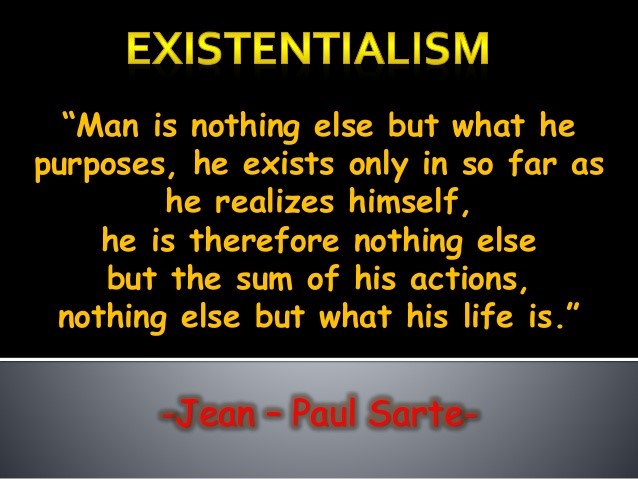
Very different focus to Humanism. Tried to answer questions humanism pretended didn't exist.
Existentialism grew out of the work of two thinkers of the 1800s:
Soren Kierkegaard (1813-1855), a Danish philosopher and Protestant theologian, considered the founder of the movement ("Father of Existentialism"). Kierkegaard taught there is no objective God; no possibility of objective truth; the Bible has been demythologised;
Friedrich Nietzsche, a German philosopher. Articulated the slogan, "God is dead". "Since God is dead, man must go it alone. He must make up his own rules and values as he goes along. Virtues prized by Christianity must be discarded as they tend to preserve the weak and ailing." Adopted as the "prophet" of Nazism in Germany in the 1930s.
The most prominent existentialist thinkers of the 1900s include the French writers Albert Camus, Jean-Paul Sartre, and Gabriel Marcel; the German philosophers Karl Jaspers and Martin Heidegger; the Russian religious and political thinker Nicolas Berdyaev; and Martin Buber, a Jewish philosopher.
Sartre wrote after WWII, when the war's atrocities showed what educated, developed man is capable of doing. Sartre was atheistic. According to his theories, "God" is neither a person nor a thing, but a weapon used by society to impose its moral values on individuals.
Heidegger tried to address the issue of anxiety (angst) in peoples' lives. "We don't know what is unsettling us inside ... the life of every human being is defined by its finite boundaries, where we are."
Existentialism is a revolt against traditional philosophy, which reached its climax with the German philosophers Immanuel Kant and Georg Wilhelm Friedrich Hegel. Traditional philosophers tended to consider philosophy as a science. They tried to produce principles of knowledge that would be objective, universally true, and certain.
Existentialism recognises that a deep search exists, but overlooks the simplicity of the Gospel. Jesus said, "I am come that they might have life..." (John 10:10).
Key beliefs:
- objective, universal, and certain knowledge is an unattainable ideal; we can never really be sure every individual, even the philosopher or scientist seeking absolute knowledge, is only a limited human being
- human life is basically a series of subjective decisions that must be made with no way of knowing conclusively what the correct choices are. The individual must decide what is true/false right/wrong; which beliefs to accept/reject, without help from external laws, ethical rules. traditions
- there are no objective standards or rules to which a person can turn.
Existentialists do not base religion on rationality. They argue that religious belief is not a problem involving proof or disproof, but a decision, which, like other human decisions, must be made separately by each individual in the absence of conclusive evidence.
The existentialist's interest in religion is primarily an interest in human experience. Camus: "The only serious question left for philosophers to decide is the question of suicide.
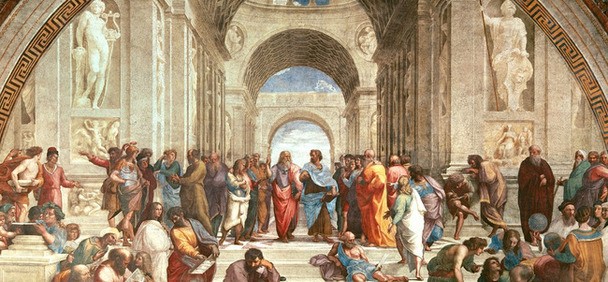
Christian View of Existentialism
- if there is no God life is meaningless - Nietzsche's brand of existentialism is called "nihilism" meaning nothingness. Life has no meaning. Pessimism is the logical consequence
- if this time is the only real time, the past and all human values are arbitrary
- if there is no God, truth, ethics are subjective; there are no absolutes
- existential man is rudderless
"Impaled on my wall, my eyes dimply see
The pattern of life my life and the puzzle that is me
From the moment o/my birth, till the instant of my death
There are patterns that I must follow, just as I breathe each breath.
Like a rat in a maze, the path before me lies
And the pattern never alters, until the rats dies '
(Simon and Garfunkel)
- the Biblical message is very different - we are men/woman, made in the image of God (Genesis 1:27); He loves us, and has a purpose for our lives.
- God has shown us the meaning of life - what happened in the past has been recorded for our knowledge, understanding, hope and guidance (l Corinthians 10:6; Hebrews 11).
3. Positivism
Auguste Comte: "No statement is meaningful unless it can be verified empirically."
[Not to be confused with "Positive Thinking"]
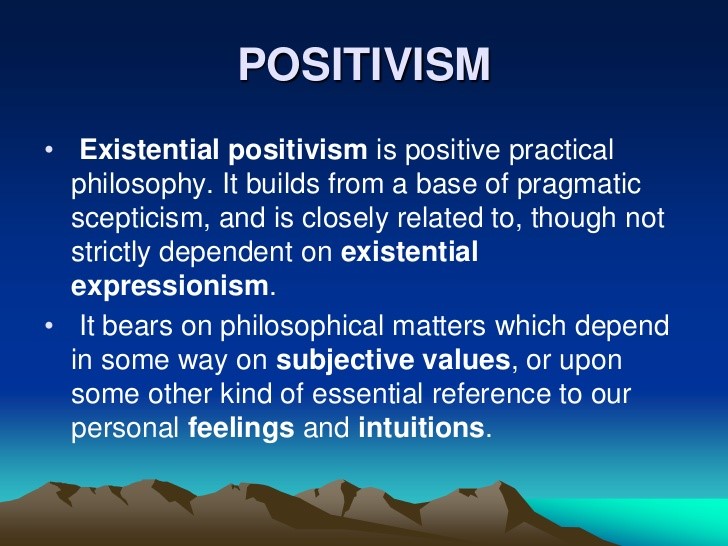
Positivism is a variation of "empiricism", ie "all knowledge is based on experience". There are two main forms of positivism. Auguste Comte, a French philosopher, developed the first form of positivism. The second form, known as "logical positivism", originated in the 1920s among a group of philosophers called the Vienna Circle.
Comte's positivism was based on his three-stage evolutionary account of history. He believed human thought goes through three stages, which he set out in, The Course of Positive Philosophy (1830-1842).
These stages are:
- theological (early man thought largely in theological terms, the actions of divine beings)
- metaphysical (speculative stage - explanations are sought in terms of causes and principles)
- positive (or scientific- all claims must be tested by scientific fact; positive knowledge). People use the positive method to explain existence. This method consists of reasoning by reference to observation alone.
Comte urged that the positive method be used for all scientific study, including the study of humanity. He argued that humanity should be studied through biology and sociology, a term he originated. Taught that progress should aim for "sociocracy", a social state based on science and a new religion of humanity. Philosophers would govern this state according to the principles of positivism.
Logical Positivism was developed by the Vienna Circle under the leadership of the German physicist and philosopher Moritz Schlick. The group included the German philosopher Rudolf Carnap and several other leading philosophers and scientists. Its main doctrine was a controversial idea called the "verifiability criterion of meaning". According to this doctrine, all statements that cannot be verified by sense perception - except for provable statements of mathematics or logic - are meaningless nonsense. The Vienna Circle aimed to eliminate such unverifiable statements and ideas from science and philosophy. Within this framework, statements such as, "God is love" are meaningless non-sense.
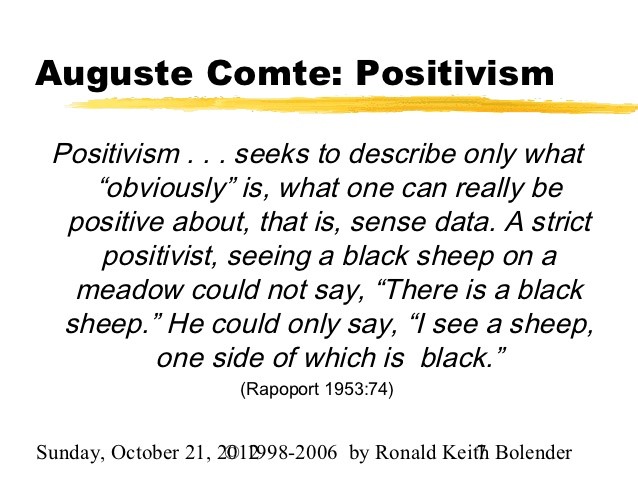
Christian View of Positivism
- the idea of "seeing is believing" is anti-faith, cf Thomas in John 20:29; faith is not necessarily based on physical "evidence" (Hebrews 11:1)
- it is impossible to verify everything, eg the existence of God. Empirical verification means verification by the senses, which is not satisfactory because it is subjective and therefore "meaningless non-sense" itself. God "is" (hence His Name), regardless of whether or not we believe in Him we can never falsify the possible existence of something empirically because our empirical powers are finite and subject to error we trust Christ who is seen, about matters that are both seen and unseen the real empirical evidence is creation (Romans 1).
SHARING THE GOSPEL IN A PSEUDO-CHRISTIAN WORLD
- learn to recognise humanist, existentialist & positivist thought
- understand that people have had their faith shattered > without faith there is no hope
- feel the weight and despair that hangs over modern post-theist man
- emphasise there is no dichotomy between seen/unseen - both are parts of the whole
- base hope and faith on Christ alone for salvation - Colossians 2:6-10
- engage the search mechanism and faith capacity that God has created in everyone
For Thou madest us for Thyself, and our heart is restless until it repose in Thee " (Augustine, 400)
- be "real"; engage the world without losing simplicity in Christ (2 Corinthians 11 :3,4)
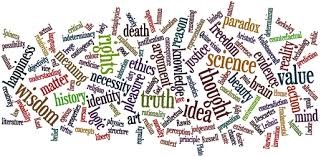
"You'll remember, friends, that when I first came to you to let you in on God's master stroke, I didn't try to impress you with polished speeches and the latest philosophy. I deliberately kept it plain and simple: first Jesus and who he is; then Jesus and what he did-Jesus crucified." (1 Corinthians 2:1, 2 Message).









